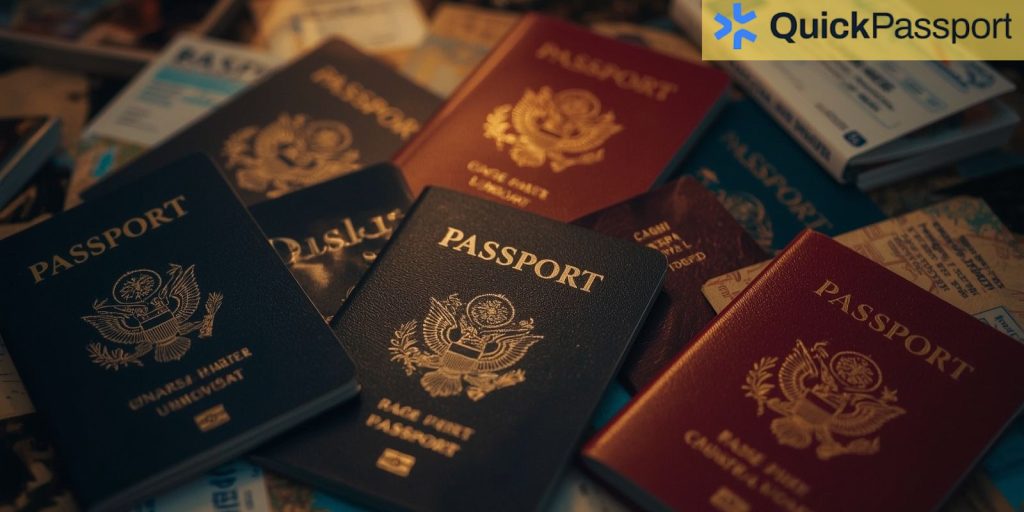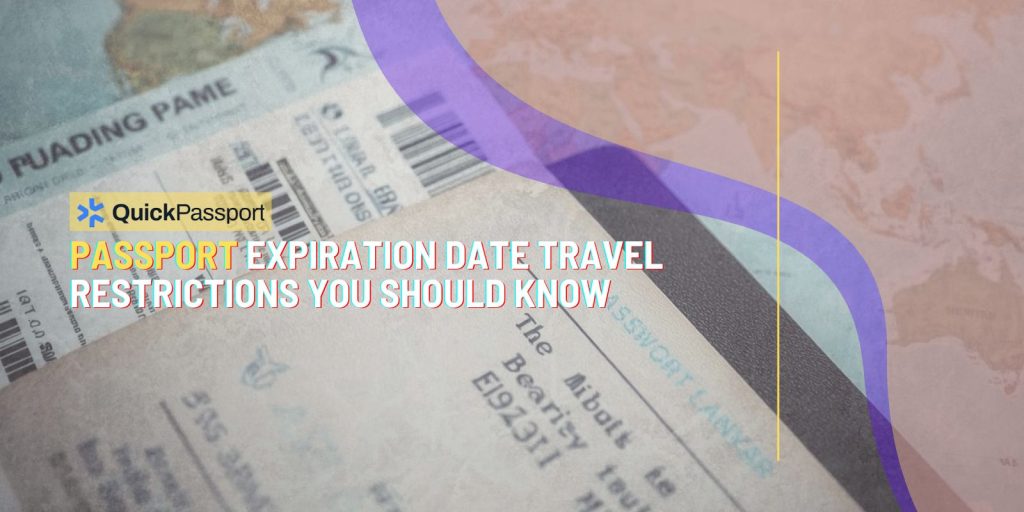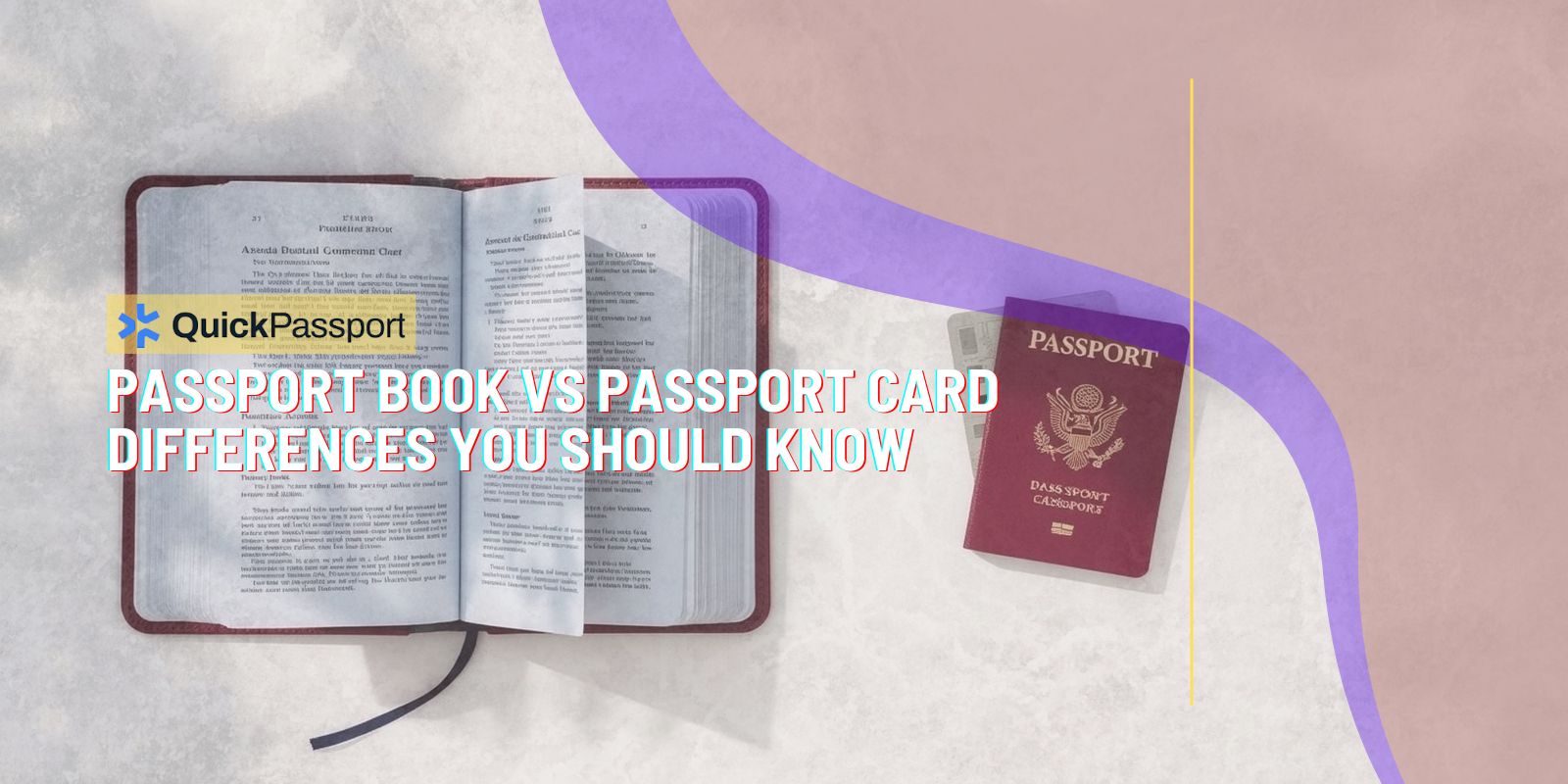Traveling internationally requires careful attention to passport validity, and understanding passport expiration date travel restrictions can save you from costly delays, denied boarding, or being turned away at immigration. Many travelers assume their passport is valid for travel as long as it hasn’t expired, but this assumption can lead to serious complications and ruined vacation plans.
The reality is that most countries enforce strict passport expiration travel rules that require your passport to be valid for a specific period beyond your planned departure date. These requirements vary significantly from country to country, with some nations requiring six months of validity, others requiring three months, and some accepting passports valid until your departure date. Understanding these nuances is crucial for any international traveler.
Beyond the basic validity requirements, additional factors can complicate passport expiration travel restrictions. Airlines often have their own policies that may be stricter than government requirements, and they may refuse to board passengers whose passports don’t meet their standards. Transit countries also impose their own rules, even if you’re not leaving the airport during a layover.
The consequences of not meeting passport expiration date travel restrictions can be severe and expensive. Travelers may face denied boarding at their departure airport, resulting in missed flights, lost hotel reservations, and the need to obtain emergency passport services. Even worse, some travelers discover the problem upon arrival at their destination, leading to immediate deportation and additional costs.
Different types of travel also have varying requirements. Business travelers, tourists, and those visiting family may encounter different rules, and the purpose of your visit can sometimes influence how strictly these requirements are enforced. Additionally, dual citizens and travelers with multiple passports must navigate complex rules about which passport to use and when.
Staying informed about passport expiration travel rules is essential for smooth international travel. This knowledge helps you plan ahead, avoid last-minute complications, and ensure your travel documents meet all necessary requirements well before your departure date.
Key Takeaways
- Six-month rule dominance: Most countries require passports to be valid for at least six months beyond your planned departure date, making this the most common passport expiration date travel restriction worldwide.
- Three-month alternatives: European Union countries and several others accept passports valid for three months beyond departure, but this rule varies significantly between nations and can change based on bilateral agreements.
- Airline policy variations: Airlines may enforce stricter passport expiration travel rules than destination countries require, potentially denying boarding even when government requirements are technically met.
- Transit country complications: Layovers and connecting flights can trigger additional passport validity requirements, even if you don’t leave the airport during your connection.
- Emergency renewal options: Expedited passport services are available for urgent travel needs, but processing times and costs vary significantly depending on how quickly you need your new document.
- Dual citizenship considerations: Travelers with multiple passports must carefully choose which document to use based on destination requirements and bilateral agreements between countries.
- Seasonal enforcement variations: Some countries may enforce passport expiration date travel restrictions more strictly during peak tourist seasons or periods of heightened security concerns.
- Return journey requirements: Your passport must remain valid for your entire trip, including the return journey, and some countries verify this before allowing entry.
Understanding Global Passport Validity Requirements
Passport expiration date travel restrictions exist as a fundamental component of international border security and immigration control. These requirements ensure that travelers maintain valid documentation throughout their entire journey and provide a buffer period for unexpected travel delays or extensions. The logic behind these rules stems from the need to prevent travelers from becoming stranded with expired documents in foreign countries.

The six-month validity rule represents the most common standard globally, implemented by countries across Asia, Africa, and the Americas. This requirement means your passport must be valid for at least six months beyond your intended departure date from the destination country. Countries enforcing this strict standard include popular destinations like Thailand, China, India, Brazil, and most African nations.
European Union countries generally follow a more lenient three-month rule, though this applies primarily to short-term tourist visits. The Schengen Agreement countries typically require passport validity for three months beyond your planned departure, but this can vary for longer stays or different visa categories. Countries like Germany, France, Spain, and Italy generally follow this standard for tourism purposes.
Some destinations accept passports that are valid only until your departure date, though this is becoming increasingly rare. These countries include the United Kingdom for certain visitors, some Caribbean nations, and a few other destinations with specific bilateral agreements. However, even these countries may have exceptions based on your nationality or the purpose of your visit.
Understanding these variations is crucial because passport expiration travel rules can change based on diplomatic relationships, security concerns, and seasonal factors. Countries may temporarily adjust their requirements during periods of heightened security or health emergencies, as demonstrated during the COVID-19 pandemic when many nations implemented additional documentation requirements.
Country-Specific Passport Expiration Requirements
Asia represents one of the most stringent regions for passport expiration date travel restrictions, with virtually all major destinations requiring six months of validity. China enforces this rule strictly for all visitors, regardless of nationality or purpose of visit. The Chinese immigration authorities will deny entry to travelers whose passports don’t meet this requirement, and airlines serving China routes are equally strict about enforcement.
Japan maintains a complex system where the validity requirement depends on your nationality and intended length of stay. Most visitors need passports valid for the duration of their stay, but some nationalities require three to six months of validity. South Korea requires six months for most visitors, while Thailand, Vietnam, and Indonesia are particularly strict about the six-month rule for all international arrivals.
European passport expiration travel rules vary significantly despite the Schengen Agreement’s general framework. While most EU countries accept three months of validity for short-term visits, the United Kingdom post-Brexit has implemented its own requirements. British authorities now require EU citizens to have passports valid for the entire duration of their stay, with additional considerations for multiple entries.
Russia maintains a six-month requirement for most visitors, while Turkey requires six months for many nationalities but has exceptions for certain countries. Norway and Switzerland, despite being outside the EU, generally follow Schengen-style three-month requirements for most tourists.
The Americas present a mixed landscape of passport validity requirements. The United States requires foreign visitors to have passports valid for their entire stay, with some exceptions based on country-specific agreements. Canada generally requires validity for the duration of stay plus one day, though this can vary by nationality.
Mexico enforces passport validity for the duration of stay, while most Central American countries require six months. Brazil, Argentina, and Chile typically require six months of validity, though there are exceptions for certain South American nationals under regional agreements.
African and Middle Eastern countries almost universally require six months of passport validity. Egypt, Morocco, Kenya, South Africa, and the UAE all enforce this requirement strictly. These regions often have additional considerations for transit passengers and those traveling on business versus tourist purposes.
Airline Policies and Enforcement Practices
Airlines play a crucial role in enforcing passport expiration date travel restrictions, often implementing policies that are stricter than destination country requirements. This occurs because airlines face significant financial penalties and operational disruptions when they transport passengers who are subsequently denied entry at their destination. As a result, airline staff are trained to err on the side of caution when reviewing travel documents.
Major international carriers like Emirates, Singapore Airlines, and Lufthansa typically enforce a blanket six-month rule regardless of destination requirements. This standardized approach helps their staff avoid confusion and reduces the risk of transporting inadmissible passengers. These airlines often refuse boarding even when the destination country might accept a passport with less validity remaining.
American carriers such as Delta, American Airlines, and United have developed sophisticated systems to check passport expiration travel rules in real-time. Their check-in systems flag potential issues, but gate agents make final decisions based on company policies that prioritize avoiding denied boarding situations over accommodating edge cases.
Low-cost carriers often have less flexibility in their policies, as they operate with minimal staffing and tight schedules. Airlines like Ryanair, Spirit, and AirAsia typically enforce strict interpretations of passport validity requirements and rarely make exceptions, even for passengers who might technically meet destination country requirements.
The check-in process has become increasingly automated, with many airlines using digital systems to verify passport expiration date travel restrictions. However, these systems sometimes flag valid passports due to conservative programming, requiring manual override by trained staff. This can lead to delays and confusion, particularly during peak travel periods.
Airlines also consider return journey requirements when evaluating passport validity. Even if your passport meets requirements for entering your destination, airlines may deny boarding if it won’t be valid for your return flight. This is particularly important for travelers taking extended trips or those with flexible return dates.
Transit and connecting flight scenarios add another layer of complexity to airline enforcement practices. Some carriers require passengers to meet the most restrictive requirements of any country in their itinerary, including transit stops where passengers don’t leave the airport. This can result in situations where passport expiration travel rules for a brief transit stop determine whether you can begin your journey.
Emergency Passport Renewal and Expedited Services
When travelers discover their passport doesn’t meet destination requirements, emergency renewal services become essential for salvaging travel plans. The U.S. State Department offers several expedited passport services, with processing times ranging from 24 hours to several weeks depending on the urgency and service level selected. Understanding these options can mean the difference between canceling a trip and departing on schedule.

Same-day passport services are available at select passport agencies in major cities, but these require proof of urgent travel within 14 days. Applicants must provide airline tickets, hotel reservations, or other documentation proving immediate travel needs. These appointments are limited and often require calling early in the morning or using online appointment systems that open at specific times.
Expedited processing through regular passport acceptance facilities typically takes 5-7 weeks instead of the standard 10-13 weeks, but this timeline may not help travelers with immediate needs. Private passport expediting services can sometimes achieve faster results by hand-carrying applications through the process, though these services charge significant fees beyond standard government costs.
Emergency passport services abroad operate through U.S. embassies and consulates, which can issue temporary passports for urgent travel needs. These emergency documents are typically valid for one year and cost more than standard renewals. However, some countries have restrictions on accepting emergency passports, particularly for certain types of visas or extended stays.
The documentation required for emergency passport renewal includes proof of citizenship, identity verification, passport photos, and evidence of urgent travel needs. Processing fees for expedited services can range from $60 for standard expediting to several hundred dollars for same-day services through private companies. These costs are in addition to standard passport fees and don’t include potential change fees for rebooking flights.
Planning ahead remains the best strategy for avoiding emergency passport situations. Passport expiration date travel restrictions should be checked at least six months before any planned international travel, allowing time for routine renewal if necessary. Many travel experts recommend renewing passports when they have less than 18 months of validity remaining to avoid last-minute complications.
QuickPassport – Miami specializes in helping travelers navigate urgent passport renewal situations, offering expert guidance on the fastest available options and helping clients gather necessary documentation efficiently. Their local expertise can be invaluable when time is critical and travel plans are at stake.
Special Considerations and Exceptions
Dual citizenship creates unique challenges when navigating passport expiration date travel restrictions, as travelers must decide which passport to use based on destination requirements and bilateral agreements. Some countries require their citizens to enter and exit using their national passport, while others allow flexibility in passport choice. Understanding these requirements prevents complications at border control and ensures smooth travel.
Business travelers often encounter different passport expiration travel rules compared to tourists, particularly when traveling on business visas or for extended periods. Some countries offer more lenient requirements for business visitors or those with established commercial relationships, while others impose stricter scrutiny on business travel documents. Corporate travel policies should account for these variations and ensure employees maintain adequate passport validity for all planned business destinations.
Minors traveling internationally face additional complications with passport validity requirements. Children’s passports typically have shorter validity periods, and some countries have specific requirements for minors traveling alone or with only one parent. These situations require careful attention to both passport expiration dates and additional documentation like notarized consent letters.
Diplomatic and official passport holders often have different requirements, with some countries offering exemptions or reduced validity requirements for government officials and diplomats. However, these exemptions vary by country and purpose of travel, and diplomatic status doesn’t automatically override standard passport expiration date travel restrictions.
Transit passengers face complex rules that depend on airport layout, connection times, and destination countries. Some airports require transit passengers to meet entry requirements even for brief connections, while others have separate transit zones with different rules. Long layovers or overnight connections can trigger additional requirements, particularly if passengers need to collect and recheck baggage.
Medical emergencies and humanitarian travel sometimes qualify for expedited processing or special consideration at borders. However, these exceptions are limited and typically require extensive documentation. Travelers should not assume that emergency circumstances will automatically override passport expiration travel rules without proper advance planning.
Seasonal variations in enforcement can affect how strictly countries apply passport validity requirements. Popular tourist destinations may enforce rules more rigorously during peak seasons when immigration officers process higher volumes of travelers. Political tensions or security concerns can also lead to temporary increases in document scrutiny and stricter enforcement of existing requirements.
Frequently Asked Questions
Q: Can I travel if my passport expires in four months?
A: This depends on your destination. Countries requiring six months of validity would deny entry, while those accepting three months of validity might allow travel. However, airlines often enforce stricter policies than destination countries, so check both airline and destination requirements before traveling.
Q: Do passport expiration rules apply to return flights?
A: Yes, your passport must remain valid for your entire trip, including the return journey. Some countries verify that your passport will be valid for departure when you arrive, and airlines check validity for return flights during initial check-in.
Q: Are there exceptions for emergency travel situations?
A: Limited exceptions exist for genuine emergencies, but these typically require extensive documentation and advance coordination with embassies or consulates. Emergency situations don’t automatically override standard passport expiration date travel restrictions.
Q: How do transit stops affect passport validity requirements?
A: Transit requirements vary by airport and country. Some require meeting full entry requirements even for brief connections, while others have separate transit zones with different rules. Check requirements for all countries in your itinerary, including transit stops.
Q: Can airlines deny boarding if my passport meets destination requirements?
A: Yes, airlines can enforce stricter policies than destination countries require. They face penalties for transporting inadmissible passengers, so they often err on the side of caution and may deny boarding even when destination requirements are technically met.
Q: Do dual citizens need to worry about different passport validity rules?
A: Yes, dual citizens must consider which passport to use based on destination requirements and any obligations to enter/exit certain countries with specific passports. Some countries require their citizens to use national passports regardless of other citizenship.
Q: How quickly can I renew an expiring passport?
A: Emergency services can provide same-day renewal in urgent situations with proof of immediate travel needs. Standard expedited processing takes 5-7 weeks, while routine processing takes 10-13 weeks. Private expediting services may offer faster options at higher costs.
Q: Do children have different passport validity requirements?
A: Children generally follow the same passport expiration travel rules as adults, but their passports have shorter validity periods. Additional documentation may be required for minors traveling alone or with one parent, regardless of passport validity.
Conclusion
Understanding passport expiration date travel restrictions is essential for successful international travel in today’s complex global environment. These requirements, while sometimes seeming arbitrary or overly cautious, serve important purposes in maintaining border security and preventing travelers from becoming stranded with invalid documents. The consequences of ignoring these rules can be severe, ranging from denied boarding and missed flights to deportation and significant financial losses.
The key to avoiding passport-related travel disruptions lies in planning ahead and staying informed about destination-specific requirements. Rather than assuming a valid passport is sufficient, travelers should research both destination country requirements and airline policies well before their departure date. The general rule of maintaining at least six months of passport validity provides a safe buffer for most international destinations, though specific requirements vary significantly by country and travel purpose.
For Miami-area travelers facing urgent passport renewal needs, QuickPassport – Miami offers expert assistance in navigating the complex world of expedited passport services. Their local expertise and understanding of emergency renewal processes can be invaluable when time is critical and travel plans hang in the balance. Whether dealing with routine renewals or last-minute emergencies, professional guidance ensures you understand all available options and can make informed decisions about your travel documents.
The landscape of passport expiration travel rules continues to evolve, influenced by changing security concerns, diplomatic relationships, and global events. Staying informed about these changes and maintaining current travel documents represents a small investment that prevents major travel disruptions. By understanding and respecting these requirements, travelers can focus on enjoying their international adventures rather than worrying about document validity issues.






